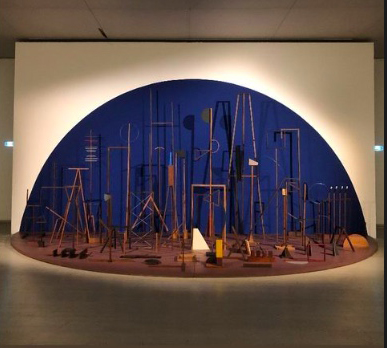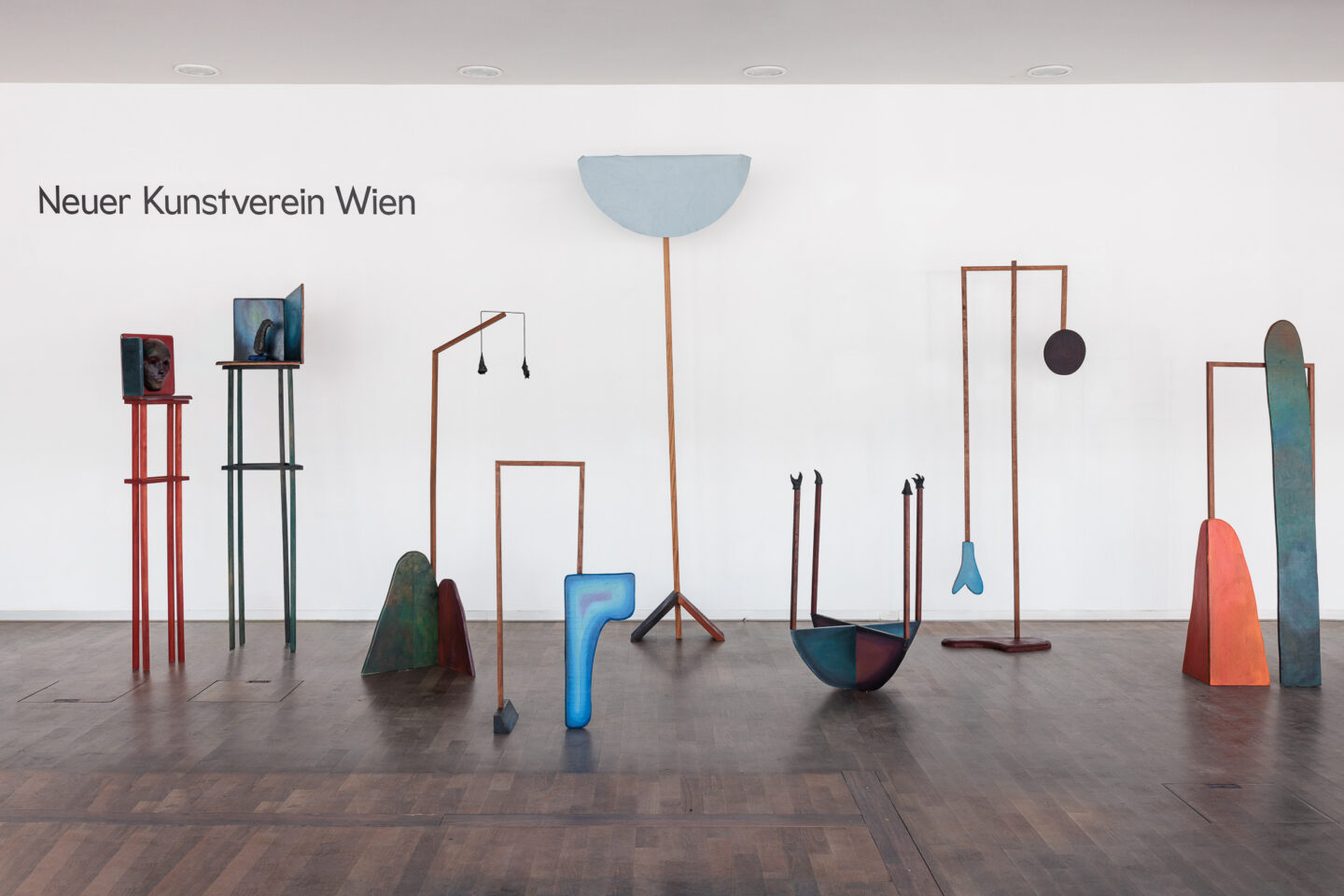Ana Mazzei in Vai, vai, Saudade, Museo Madre, Napoli, Italy - curated by Cristiano Raimondi
Ana Mazzei is in part of Vai, vai, Saudade Museo Madre, Napoli, Italy
Curated by Cristiano Raimondi
July 4 - September 30,2024

Ana Mazzei in The disagreement: a theatre of statements, Neue Kunstverein Wien, Wien, Austria
Ana Mazzei
The disagreement: a theatre of statements
Neue Kunstverein Wien, Wien, Austria - April 5 - July 31, 2024
The disagreement: a theatre of statements brings together eleven contemporary Brazilian artists whose artistic practices emerge from the most diversified cultural backgrounds, thus pointing at a wide horizon of aesthetic and political preoccupations. The ensemble of artworks in this exhibition is not only revealing of Brazil's both stratified and syncretic society but also of the ideological contradictions inherent to contemporary artistic practices on a transcultural perspective. Comprised of artworks created in different media—sculpture, installation, collage, video, painting, and performance—, this group show confronts narratives that reflect upon the impossibility of finding a common lexicon with which to debate inescapable timely issues such as class struggle, climate change, identity politics, heterogeneous belief systems, the legacy of symbolic and material culture, amongst other pressing matters.
Insofar as we live in a world where the West's hegemonic narratives have historically been told in order maintain a status quo o inequality —both in ethnic, cultural, and socioeconomic terms—, the lands today known as Brazil are here understood as a political stage where capitalist forces forged zones of extreme social unrest and disparities. A former colony of Portugal, Brazil became an independent monarchic empire whose grandiose ambition would later fuel a modernizing impetus to build a republican global economy infused with positivist notions of technological advancement and progress, notwithstanding the precariousness of its social infrastructures and massively impoverished population.
Although this is not meant to be an exhibition to scrutinise neither Brazilian history nor its artistic production, The disagreement departs from the contradictions inherent to such country—and for that matter any other previously colonised country—to exacerbate the cultural and political conflicts to indiscriminately shape contemporary political manifestations, artistic or otherwise.
Amidst a social landscape of profound cultural contrasts and ideological dichotomies, the artworks in this exhibition signal distict ways of tackling sensitive political aspects of our time.
If Cinthia Marcelle and Tiago Mata Machado enact a rather abstract choreography of precarity, violence and destruction in the video O Século (The Century), Ventura Profana will delve into the depths of the sea to revolve around ancestral life as well as its imminent demise in the wake of capitalism's extractivist modes of production—a massive photo collage that puzzles the viewer with a fragmented landscape where multifarious realities at odds. On a different note, Maurício Ianês performs the action of a janitor cleaning the floors of the Kunstverein, underscoring the social abyss between public worker's debased though essential hard labour—often done by immigrants— and the bourgeoisie's aloofness to brutal socioeconomic realities.
If Daniel Lannes self-portrait in a swimming pool transpires a sense of decadent hedonism, Allan Weber will appropriate worn out vinyl tents used for funk balls in the community (commonly known as favela) of Rio de Janeiro where he lives in order to transform them into flying sculptures above the conflagrated grounds of the exhibition—or, for that matter, of Brazil's violently stratified former capital. Moreover, Luiz Roque will also deviate from dancing choreographies to shed light over gender nonconforming and marginalized cultures, as well as their performative & coded body language.
If Vivian Caccuri's sound installation flirts with the notion of a non-specific shrine or ritualistic practice, Tadáskía will draw abstract figures in dialogue with gold sewn mended eggs, in a possible allusion to the serpent's eggs, or conversely, as a reference to the very basic source of proteins to defeat poverty and hunger. Also dealing with a sense of performative semantics, and the construction of a dramaturgy of unbalanced forces, is the installation of Ana Mazzei: an ensemble of pieces that at once hide and reveal obscure discursive purposes. And finally, Andressa Cantergiani presents a video performance where herself glides about a precarious museum plundering canvases—ultimately, bidimensional objects that conform to the Western narratives about art and its intrinsic market value.
Text: Bernardo José de Souza

